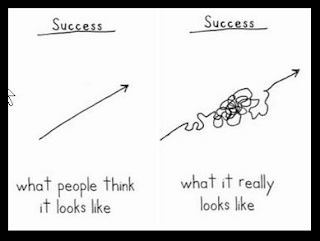Anyways, sorry for the overflowing irony. The fact, however, remains that I am deeply thankful to Professor Yunus for visiting my country, where - let's face it - social business is not widely known. Ok, let's really face it - there's maybe 1000 people in Russia who know about social business and what exactly it is. Nevertheless, he comes to Moscow, advises our economic development minister, gives our famous TV hostess a "social business contest for youngsters" idea, patiently explains our journalists and financial heads what exactly social business is and why would it ever make sense for an entrepreneur to create a social business and for investors to fund it. Just to make it absolutely clear: Social Business Forum in Moscow does NOT look like any social business forum in US or Europe, there were maybe 100 people tops at the main, plenary session when Professor gave his speech.
So, let's cut through the chase and get to the point. When it comes to Q&A session, I raise my hand and ask a question about... You guessed it! Failure! I really think that all development peeps should be proud of me. Because, clearly, there are very few (if any) people in Russia who knows about the whole admitting failure idea. Actually, there are no such thing as development or foreign aid peeps there, except for those who work in the Ministry of Defense or Russian Diplomatic sector.
That is why Professor Yunus unfortunately did not give a detailed in-depth gazillion-hour long lecture on failure and how to deal with it, which he would totally be able to do, by the way. He created a huge number of social businesses both in Bangladesh and abroad. Clearly, it could not have been all success stories? I know of at least one real failure story that Professor Yunus could have shared with the audience: Grameen Phone, which was supposed to be owned by the poor - as in one of the two social business models described by Professor himself - but is now owned by the Norwegian company Telenor. According to Muhammad Yunus, Telenor heads didn't not want to satisfy their genteleman's agreement to transfer owndership rights to the poor. Failure with no happy ending so far, but a very important lesson-learnt:
Trust, but verify. Always.
Nevertheless, Grameen's latest venture is with Adidas, whose geniuses are working on a sneakers model that will cost only 1 Euro. Isn't that something?
What Professor shared with the audience was sort of obvious, but no less valuable because of it: his path to success was not an easy one, there were many mistakes made, many times one or the other venture was not working as it should have been, frustration was definitely a part of the process. Professor Yunus said:
"You can never start with a perfect social business model, you have to start with a tentative model and then build on it."Words of wisdom and experience, of course. But how will a social investor feel about it? I am not sure, but most likely he won't be too thrilled, especially if you are not Muhammad Yunus. Another thing Professor Yunus noted:
"I was working on a couple of projects at a time. It helped me: when I had problems with one project and felt frustrated, things were going well with the other one, and it kept me going."I am actually discovering that working on many projects at once really helps me in the same way. Of course, we all know that sometimes life presents us with bad news on all fronts...But you still have to keep going. That was the main message:
No giving up if you want to change the world.By the way, he also mentioned that he never wanted to change the world. He wanted to change a woman's life, then a village, then a country, and only then the world. In other words:
Start small, grow big.
Finally, Professor tried to explain how his path to success looked like, zigzagging his hands. Yes, his path to success looked like this too:

I don't know about you, but it seems to me that I am somewhere in the beginning of the middle. Not a terribly nice thing to find out, but knowing that Professor Yunus' path had the same trajectory definitely makes it easier to handle.
How does your path to success look (or looked) like? Do you have some failure stories or lessons-learnt to share?
No comments:
Post a Comment